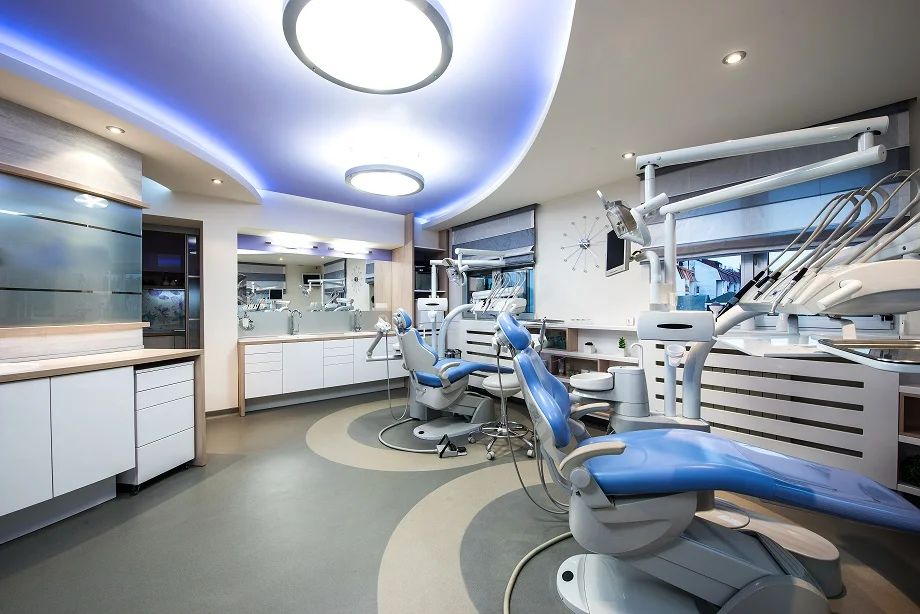
Buying a dental practice is one of the most exciting career milestones a dentist will ever achieve. However, failure to proceed with caution can produce devastating financial consequences and hinder your ability to attain your career goals. Before buying a dental practice, you should ensure that the practice is compatible with your philosophy and long-term professional vision. Additionally, if you have never purchased a business, you should consider seeking the guidance of an experienced dental attorney who can help you make sure that the practice is in good legal and financial standing. Below are the top six questions you should ask yourself before purchasing a dental practice.
"Every successful business is driven by its leader's vision…For a dental practice to reach success, it must be guided by the dentist's vision. Only a dentist with a vision can understand and communicate to the staff where he or she wants the practice to go. A vision statement is not where you are today or even where you will be in the near future. Instead, it is focused on where the practice will be years down the road."
- Dr. Roger Levin, Founder and CEO of Levin Group Inc.
The first and most important factor to consider before making a purchase is whether the practice can support your professional vision. In particular, you need to assess whether the practice has the potential to grow and evolve into the practice you hope to own five to ten years from now. For instance, if you are focused on expanding your cosmetic dentistry practice to offer aesthetic skincare treatments and wellness services, a practice that is in the process of physical expansion would be a good match for your vision.
Dental practice transitions can be challenging for all parties involved. One of the best ways to ensure a smooth transition to a new practice is to seek the support of the seller to help you build trust with existing patients. Before you commit to a purchase, ask the seller if he or she would be willing to help introduce you to current patients. There are many ways a dentist can help you in this regard, including the following:
Location is a key variable to consider when you are thinking of buying a dental practice. If your practice goal is to provide emergency services seven days a week, it is helpful to ensure that your practice is easily accessible for patients while also being within close proximity to your home. This will help reduce the amount of time you spend commuting every day while also helping to establish you as the go-to dentist for emergencies.
"I believe that before a dentist even considers buying a practice the dentist should have a very good idea of what will make them him or her happy in both their career and family life. Some people love working six days per week, having a beautiful downtown office full of new technology, and want to manage 15 staff members. Other people may prefer to work a part-time schedule so they can spend more time with their family. What might be the perfect practice for one person might be a poor choice for another."
- Dr. Brian Homann, American Dental Association (ADA)
Achieving happiness in a newly purchased practice will occur much faster if you and the seller share the same quality of care philosophy and work-life balance. Because the definition of high quality of care can vary slightly from one dentist to the next, it is important to gain an understanding of how a practice operates before you sign a contract. Specifically, pay attention to the following elements of a practice when you make an in-person visit:
Before you finalize a purchase, make sure you analyze the breakdown of services currently offered. For example, if you are a cosmetic dentist who usually treats adults, you need to assess your level of comfort treating children if you are considering the purchase of a practice that treats a larger than average number of pediatric patients.
If you lack the specialized skill required to deliver high quality dental care to children, you need to determine whether you will refer pediatric patients to a specialty provider at another practice or whether you will hire a consulting dentist to handle this segment of the business.
Sterilizers, X-ray machines, dental chairs, and lighting are costly. If you are looking at buying a practice with broken or outdated equipment, you should factor the cost of replacement equipment into your offer. Additionally, you need to ensure that all equipment complies with industry standards and has been properly serviced. When you tour the dental office with the seller, make sure that you ask the following equipment-related questions:
Buying a dental practice is one of the most significant decisions you will make in your career. Ensuring that you buy a practice that is compatible with your core philosophy and values is critical, as is the need to consider the practice location and equipment needed for your transition. Finally, before signing on the bottom line, do your homework to try to uncover any hidden motives that the seller may have for wanting to sell the practice. By consulting with a dental attorney and by asking yourself the six questions above, you can help ensure that you are making a wise investment in your future.

Stay updated with industry news!
1904 Olympic Blvd, Suite 240
Walnut Creek, CA 94596
Phone: 925-999-8200
Fax: 925-884-1725
frontdesk@dmcounsel.com
| Monday | 8:00AM - 6:00PM |
| Tuesday | 8:00AM - 6:00PM |
| Wednesday | 8:00AM - 6:00PM |
| Thursday | 8:00AM - 6:00PM |
| Friday | 8:00AM - 6:00PM |
| Saturday | Closed |
| Sunday | Closed |